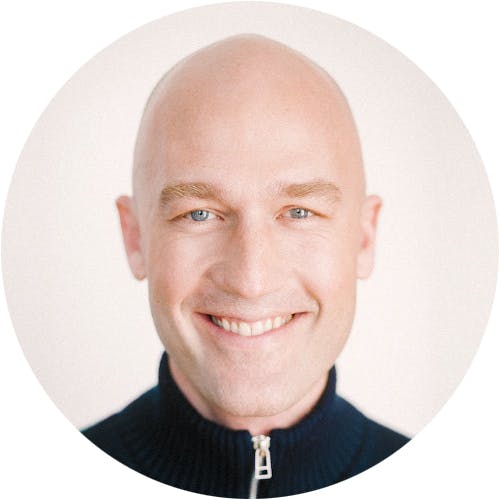You go to bed after a long flight, and while you are terribly tired, you lie down but still can't fall asleep. Because of time zone tiredness, so-called jet lag, you are not able to work normally or enjoy your long-awaited holidays. What to do? World-renowned scientists developed the app Timeshifter to help solve this problem based on the latest sleep and circadian neuroscience — here is an interview with Mickey Beyer-Clausen, CEO of Timeshifter, and Steven W. Lockley, PhD., Associate Professor of Medicine at Harvard Medical School and advisor to Timeshifter.
What are the short- and long-term effects of jet lag on our bodies and minds?
Dr. Lockley: Jet lag is not just about feeling “off” for a couple of days. Short-term effects are symptoms associated with the internal circadian clock being out of sync with the new location and are caused by sleeping, waking and eating at the wrong circadian phase. Common symptoms include insomnia, sleepiness, difficulty concentrating, poor mood, and digestive problems. Longer-term, as with shift workers, we expect people traveling a lot who often have jet lag to increase their risk of disorders such as heart disease, diabetes and depression.
How can we best prepare before we travel to avoid the adverse effects of jet lag? Could you please give five practical tips?
M. Beyer-Clausen: There are no practical ‘tips’ or shortcuts as jet lag is too complex for generic advice. The tips are to use Timeshifter, which does the hard work for you, and resets your clock to the new destination much more quickly, relieving the symptoms caused by circadian misalignment, or being ‘out of sync.’
What should we do to adapt to a different time zone? And how long does it usually take to recover?
M. Beyer-Clausen: The recovery depends on the extent of the trip (number of time zones), whether you preadapt before leaving, and whether you follow all the advice. Without proper advice, you will shift probably less than one time zone a day. We anticipate rates three-four times quicker than that.
There is a lot of advice for travelers like "get as much sleep on the plane as possible,” “stay hydrated"etc. Do they really work?
Dr. Lockley: Not really, as timing is key, and the timing of advice changes for different trips, or even the same flight leaving at different times of the day. No generic solution can help you tackle the underlying cause of jet lag. Timing is everything when it comes to jet lag and doing things at the wrong time can shift your rhythms in the wrong direction, making your jet lag worse.
Jet lag is a circadian rhythm disorder, temporary disruption of the 24-hour rhythms in your brain.
How does The Jet Lag App work? What does a "personalized jet lag plan" involve?
M. Beyer-Clausen: All the advice is based on individual preferences for sleep timing and sleep duration, diurnal preference (whether you are a ‘morning’ or ‘evening’ type), whether to use melatonin or not, whether to use caffeine or not, or whether to start shifting your clock in the one - two days before leaving for your trip. There are hundreds of different options for each trip, depending on these preferences, so Timeshifter provides highly personalized advice. It’s about precisely identifying the actions to take and the timing of those actions.
The app is based on research in sleep and circadian neuroscience. Could you please tell us more about it?
Dr. Lockley: Jet lag is a circadian rhythm disorder, temporary disruption of the 24-hour rhythms in your brain. Circadian rhythms are the natural 24-hour rhythms in our physiology, behavior and metabolism. They are driven by the suprachiasmatic nucleus (SCN), a group of around 50,000 cells in the hypothalamus that makes up our circadian clock, generating the daily signals that control the 24-hour cycles in our sleep, performance, mood, digestion, many hormones and even our gene expression.
These cells generate rhythms that would, on their own, cycle close to — but not exactly — 24 hours. This clock is reset to match environmental time each and every day. In mammals, including humans, the daily light-dark cycle is the strongest signal in resetting the clock. Our eyes detect patterns of light and dark and send signals to the circadian clock in order to keep our biology ‘in sync’ with the real world. Those unable to detect light due to total blindness can’t reset their circadian clocks to light, and the resultant non-24-hour rhythms in sleep, hormones and other rhythmic functions, can lead to serious health and wellness issues.
In jet lag, it’s not a lack of light information that causes the circadian disorder, but rather the disruption in the timing of light and dark exposure. When we jump across time zones, the light-dark cycle changes too quickly for our clocks to keep up with, and our internal circadian rhythms become ‘desynchronized’ from the new location. This causes us to be sleepy at the wrong time, awake at the wrong time, hungry at the wrong time, and unable to recover quickly from the trip. Without specific interventions, the clock will shift an hour or less per day, meaning that during that once-in-a-lifetime trip from New York to Paris, at least the first six days will be marred by the symptoms of jet lag. During a business trip from LA to Shanghai, you will be off your game for as long as eight days, which might be more than the whole trip.
In jet lag, it’s not a lack of light information that causes the circadian disorder, but rather the disruption in the timing of light and dark exposure.
Timeshifting is a method also used by astronauts. How does the jet lag travelers experience differ from the jet lag on a spacecraft?
M. Beyer-Clausen: Similar algorithms have been used with astronauts traveling across different earth destinations for training (e.g. Houston to Moscow, Cologne or Tokyo). There is no typical ‘jet lag’ on the International Space Station (ISS), but astronauts do shiftwork and have unusual light-dark exposure which causes similar symptoms.
How has the efficiency of the app been proven?
M. Beyer-Clausen: All the components of the advice are well proven, and we cite examples of the scientific papers underlying those claims on the website under the science section. Our internal analysis of post-trip questions on the app shows a very good success rate of avoiding jet lag when people follow the advice as opposed to those who don’t.


